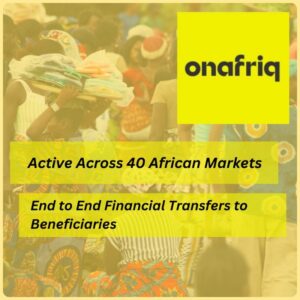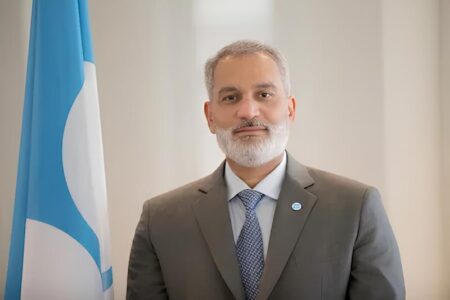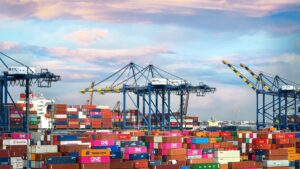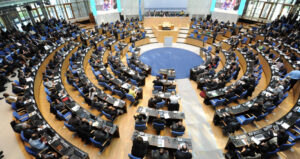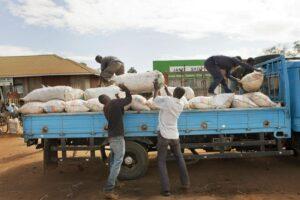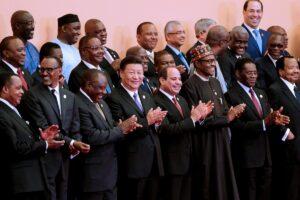- Africa’s new dawn: the rising role of digital and AI in agriculture
- Can Dangote Refinery Transform Africa Energy Ambition
- Gallup Survey: 80 per cent of Kenyan Workers Are Disengaged and Seek New Opportunities
- Madagascar Man Freed from 5KG Tumor After 15-Year Struggle
- How women in Africa are perceived and treated
- Sugar consumption in Kenya to Increase to 1.23 Million Tonnes
- Can Somalia and Turkey Oil deal Bring Change in Somaliland
- Remittances to Kenya dropped to $371.6 million in June, marking a six month low
Opinion
- Existing scientific research in Africa’s renewable energy transition often overlooks certain dispatchable technologies that could enhance grid flexibility.
- Studies primarily focus on zero-carbon dispatchable technologies like concentrated solar power and geothermal, despite their limitations in efficiency, reliability, and cost.
- Balancing engine power plants, which are globally recognized for their flexibility, reliability, and cost-effectiveness, are notably absent in these analyses, despite their potential to run on clean fuels in the future.
It is no longer disputed that solar and wind power will be the foundation of Africa’s future energy systems. They are perfectly suited to the continent’s unique conditions and are already the most cost-competitive power option in almost all cases. This consensus spans academia, businesses, and policymakers who all recognize the potential of renewable energy to meet Africa’s growing needs sustainably.
They also readily acknowledge the intermittent nature of renewables, and the associated need for flexible power capacity within the …
- Creating a “greater purpose” is essential to Onafriq’s corporate culture, driving its growth and unifying Africa’s digital payments.
- Onafriq’s digital payments network connects over 1,300 cross-border payment corridors and facilitates financial access for over 500 million mobile wallets and 200 million bank accounts in 40 markets in Africa.
- Overall, Onafriq empowers small businesses and women entrepreneurs by providing access to digital payment options, asset-based financing services, and additional income opportunities.
Being deliberate about creating a “greater purpose” is essential to building an authentic corporate culture, engaging stakeholders, and navigating the evolving landscape of corporate philanthropy. This is the philosophy behind Africa’s largest digital payments network, Onafriq’s, extensive growth and vision to unify the continent’s digital payments landscape according to its General Counsel and Chief Risk Officer Funmi Dele-Giwa.
Dele-Giwa recently shared insights into the organisation’s unique position at the intersection of social impact and commercial ambition at the Women in …
- The momentum of financial inclusion programmes is progressively strengthened as financial institutions, businesses and consumers embrace cashless convenience and digital payments that are secure and seamless.
- Currently, Rwanda is a prime market for digital payments, with a young population of which 69 per cent is below the age of 30, and the second-highest population density in Africa
The momentum of financial inclusion programmes is progressively strengthened as financial institutions, businesses and consumers embrace cashless convenience and digital payments that are secure and seamless. Technology development broadens the scope of delivery of financial services, and the advantages of digital payments manifest in providing easy access to the masses, reducing travel and queuing times, quicker transactions and seamless money movements that are cashless.
Currently, Rwanda is a prime market for digital payments, with a young population of which 69 per cent is below the age of 30, and the second-highest population density …
- The Russian invasion of Ukraine has proved highly disruptive to world energy markets.
- There is still a distance between Africa and the rest of the world in terms of what the continent can do to establish closer ties to energy markets in Europe and elsewhere.
- Now is the time to offer tax incentives, fast-track projects, show more transparency in processes, and do everything possible to minimize investor risk.
It’s undeniable that the Russian invasion of Ukraine proved highly disruptive to world energy markets. This geopolitical clash led to the imposition of Western sanctions on the export of Russian oil and fuel and the imposition of a price cap on Russian crude by the G7 group.
It also led to the redirection of world oil trade flows. Asian countries such as China and India, for example, began absorbing considerably more Russian oil and fuel than they had done previously, and many …
- The promises made to uplift Africa and its people have failed to provide equitable justice. The trend continues.
- While Africa can play a pivotal role in the global fight against climate change, it should not come at the cost of its own economic development.
- Every climate finance dollar flowing into the continent must find its way into sustainable measures of mitigation and adaptation.
At Africa Climate Week, the resounding call of a child echoed through the packed hall, stating, “We will hold you to your promises.” This declaration not only reflected the sentiment of the child but also resonated with the aspirations of the entire continent.
As civilisation thrived, the continent went from being the cradle of civilization to the dump yard of urbanization. The promises made to uplift Africa and its people have failed to provide equitable justice. The trend continues.
Africa Climate Summit 2023
The promises made to …
Africa’s oil and gas industry looks flat in the final quarter of 2023. That is, as AEC details in its newly released 2024 African Energy Outlook, capital expenditure (CAPEX) on upstream projects is still rising, but it is on a relatively slow upward trajectory — and it is moving up more slowly than we had predicted last year because of changes in the timeline of certain African upstream projects.…
The Conference of the Parties (COP) to the United Nations Framework Convention on Climate Change (UNFCCC) represents an important international forum for countries to discuss and address global climate change issues. However, these conferences have tended to be high-level and process-based, and COP 27 was no exception. – negotiations took place, and some of the highlights included the historic establishment of the loss and damage fund, which was seen as setting a precedent for climate justice.
However, agreements on other matters, such as phasing out fossil fuels and setting emission peak periods, were not achieved. For African countries, COP 28 marks an important pivot point around funding, just transition, and the Nairobi Declaration. There will be a push for realisations on commitments made and innovative funding mechanisms to drive accelerated climate action now and beyond.…
There are formidable challenges faced by the oil and gas industry across Africa, the Middle East and Asia (AMEA) regions, but perhaps the most pressing is the need for environmentally sustainable power solutions.
Currently, flaring poses a significant threat to the sector across its environmental impact and the cost to the company. Around 139 billion cubic metres (bcm) of natural gas are flared annually, releasing carbon dioxide (CO2), methane and black soot that affect climate change and human health. It also directly influences the sector’s ability to achieve Net Zero and the transformative target of eliminating non-emergency flaring by 2030.…
- The African Energy Chamber predicts that oil markets in 2024 will stay balanced and somewhat flat, with only marginal growth.
- Aviation-driven liquids product demand—primarily from the US and Asia—likely will comprise over 50% of global demand during the next 18 months.
- Another key driver will be industrial demand, particularly from the petrochemical sector in the Middle East, Asia, and the US, along with power generation projects.
Six months after the World Health Organization (WHO) declared COVID-19 is no longer a health emergency, it’s still difficult to fully grasp the far-reaching damage the pandemic has inflicted, from the tremendous toll on lives to economic devastation.
The chaos certainly was felt in the oil industry, which saw record distortions during the pandemic era, especially during its first few months.
As David Gaffen wrote for Reuters in February 2022, “Like much else during the pandemic, what was happening in fuel markets was unprecedented. …






